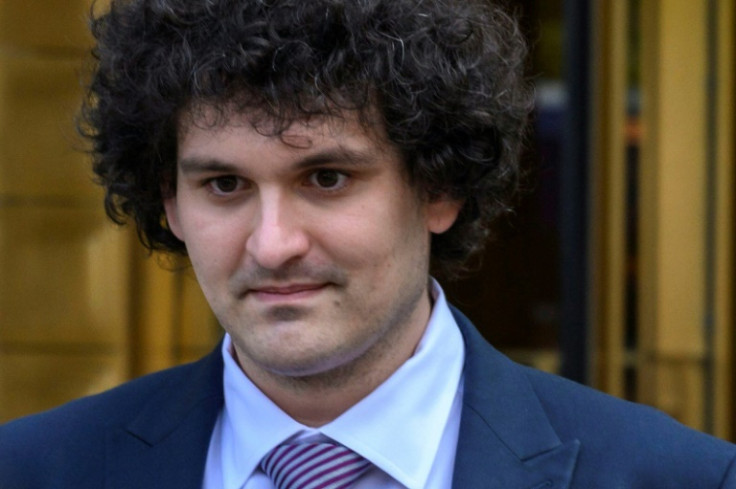Former Crypto Star Sam Bankman-Fried Faces US Trial
Sam Bankman-Fried, once the most respected face of crypto currency, goes on trial Tuesday in federal court facing seven counts of fraud that could see him spend decades in prison.

Sam Bankman-Fried, once the most respected face of crypto currency, goes on trial Tuesday in federal court facing seven counts of fraud that could see him spend decades in prison.
The curly haired graduate of the Massachusetts Institute of Technology in just a few years turned his FTX platform into the world's second biggest crypto exchange, propelling him to become the tech world's latest out-of-the-blue billionaire.
Bankman-Fried's meteoric rise was only matched by his ignominious downfall, which saw him escorted last year by police from his luxury apartment in the Bahamas and extradited to face charges in the United States.
At the height of his celebrity, Bankman-Fried was thought to be worth $26 billion, with FTX becoming a near household name through a frenzied marketing campaign and celebrity endorsements by supermodel Gisele Bundchen, NBA star Stephen Curry and others.
The 31-year-old's empire began to crumble last November when revelations alleged that client money in the FTX platform was being funneled to prop up Alameda Research, the company's crypto-focused investment arm.
The rumors quickly snowballed and investors pulled their money from FTX, sinking it swiftly into bankruptcy and disgracing Bankman-Fried as a financial pariah on par with Bernie Madoff or Elizabeth Holmes.
Manhattan US Attorney Damian Williams has accused him of diverting funds from FTX clients, but also wire fraud, securities and commodities fraud, and money laundering.
Danielle Sassoon, an attorney for the prosecution, told a hearing that the number of victims of Sam Bankman-Fried's alleged actions could be "in excess of a million."
Charged with fraud and criminal conspiracy, SBF, as Bankman-Fried is known, was extradited at the end of December from the Bahamas, where FTX was headquartered, and released on a $250 million bail upon his arrival in New York.
Pending the trial, Bankman-Fried was placed under house arrest at the Silicon Valley home of his parents, both professors at Stanford University.
But US District Judge Lewis Kaplan rescinded that decision, ordering Bankman-Fried behind bars over alleged attempts of witness intimidation.
According to prosecutors, while holed up at his parent's home, Bankman-Fried passed on documents to the New York Times in an attempt to influence the testimony of Caroline Ellison, his ex-girlfriend and a former Alameda executive.
She has also been indicted in the case and has agreed to cooperate with the US authorities, along with three other former executives.
They are expected to take the stand in his six-week trial -- where Bankman-Fried will likely admit egregious management errors but no wrongdoing, and point the finger at Ellison.
"If the prosecutors can do a good job explaining that people invested money, the fact that it's crypto won't really make a difference," said Julia Jayne, a California lawyer specializing in white-collar crime.
A long blog post that Bankman-Fried had planned to publish on the social network X, published by the Times before he was taken into custody, offered clues to his defense strategy.
In it, he presents himself, as he has done in the past, as an overworked boss -- unable to rely on his incompetent or disinterested teams -- who let himself be overtaken by outside circumstances.
© Copyright AFP 2025. All rights reserved.





















